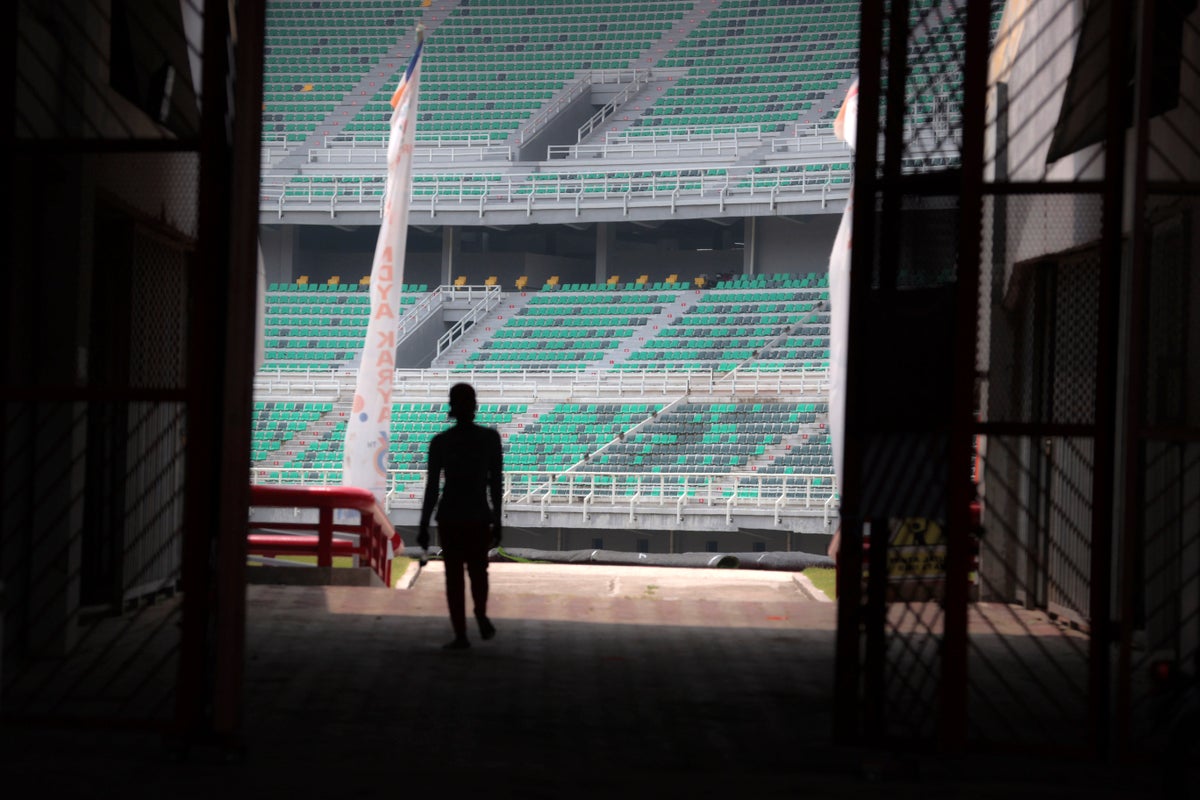
Indonesian soccer players and fans reacted with tears and outrage after the country was stripped of hosting rights for the Under-20 World Cup only eight weeks before the start of the tournament amid political turmoil over Israel’s participation, leaving Indonesian soccer at risk of further sanctions.
The youth soccer event was expected to be a rare turn on the global soccer stage for a country that hasn't been to the World Cup since winning independence. But it was officially canceled Wednesday after two regional governors said they would not allow an Israeli team to play in their territories.
FIFA said Indonesia was removed from staging the 24-team tournament scheduled to start on May 20 “due to the current circumstances,” without specifying details.
In an emotional meeting with Indonesian youth players and their coach in Jakarta on Thursday, Zainudin Amali, deputy chair of the national soccer association, apologized. Some players were seen shedding tears while others looked down sadly.
“It’s a heartbreaking decision that ruined our dreams, and now we are confused about our future as players if FIFA imposes sanctions,” said Hokky Caraka, a striker in Indonesia’s U-20 national team, “It's the players who suffer the most,” he said.
Shin Tae-yong, a South Korean former professional footballer and manager who is coaching the Indonesia national football team, said Indonesia’s failure to host the U-20 World Cup is a big loss.
“I am hurt!” he said, “I can feel the sadness and mental breakdown of the players. They have prepared tirelessly alongside me in the last three and a half years."
Popular social media were flooded with outraged comments from disappointed fans. Many blamed politics, a year ahead of a presidential election. Indonesia is the world’s most populous Muslim-majority nation and does not have formal diplomatic relations with Israel.
“Indonesia’s name in international sports is tarnished, this is a bitter event in our soccer history,” said Andieka Rabbani, a university student in the capital, Jakarta.
He added that Israeli delegations have been to Indonesia for sporting and diplomatic events before, including four Israelis who competed in the World Cycling Championship last month in Jakarta.
A number of members of the Israeli Parliament also attended the Interparliamentary Union conference in Bali last year were also warmly welcomed by Indonesia’s house speaker Puan Maharani, the grand-daughter of Indonesia’s first president Sukarno, and the Bali Governor Wayan Koster, who was the first to reject the Israeli youth soccer team.
An Israeli delegation also attended the COP-13 to the United Nations Framework Convention on Climate Change in Bali in 2007 without any rejection.
“Our stance on the U-20 World Cup is too politicized, because a presidential election is coming,” Rabbani said.
Arya Sinulingga, a national soccer association executive committee member, was concerned about further repercussions.
“This is a sign that we are not able to carry out what has been asked (by FIFA) ... among other things that there should be no discrimination,” Sinulingga said in an interview with local television, “What we are most worried about right now is that we will be ostracized from international events, especially from world soccer activities.”
The Indonesian soccer federation could be further disciplined by FIFA. A suspension could remove Indonesia from Asian qualifying for the 2026 World Cup. The continental qualifiers start in October.
The decision followed a meeting in Doha, Qatar between Indonesian soccer federation president Erick Thohir and Gianni Infantino, the president of FIFA, soccer’s world governing body.
Thohir, the former president of Italian club Inter Milan and a former co-owner of the Philadelphia 76ers, said as a member of FIFA, Indonesia had little choice but to accept the decision.
“I have tried my best,” he said in a statement. “After delivering a letter from President Joko Widodo and discussing it at length with the President of FIFA, Gianni Infantino, we must accept FIFA’s decision to cancel this event that we were both looking forward to.”
He said although he’d conveyed all the concerns and hopes of Indonesia’s president, soccer lovers as well as the players from the Under-20 Indonesian national team, “FIFA considered that the current situation cannot be continued.”
Soccer and public authorities in Indonesia agreed to FIFA’s hosting rules, which require hosts to accept all qualifying teams, in 2019 before being selected to stage the 2021 edition of the Under-20 World Cup. The coronavirus pandemic forced the tournament to be postponed for two years.
Indonesian President Joko Widodo said Tuesday evening that his administration objected to Israel’s participation, but urged citizens to keep sports and politics apart. He told citizens that the country agreed to host before knowing Israel would qualify.
Israel qualified in June of last year for its first Under-20 World Cup by reaching the semifinals of the Under-19 European Championship. The team went on to lose to England in that final.
Israel has played in Europe since the 1970s, after leaving the Asian Football Confederation for political and security reasons.
____
Dunbar reported from Zurich. Associated Press writer Edna Tarigan in Jakarta, Indonesia, contributed to this report.







